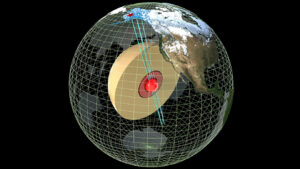List of the Top 10 Factors that Endanger the Continuation of Human Civilization
Throughout history, civilizations have come and gone due to various reasons such as wars, disease, natural disasters, altered weather patterns, and famine. Noah Webster defined civilization in his 1828 dictionary as “the state of being refined in manners, from the grossness of savage life, and improved in arts and learning.” Today, civilization has become much more complex and denotes global complexity and technological sophistication.
The current stability of civilization depends on a vast global interdependence of countless connected components. Food and fuel, materials for manufacturing, clothing and housing require the cooperation of individuals, corporations, and nations. Transportation, communication, and economic activity anywhere affect everything everywhere. However, civilization is on the brink of breakdown, and there are a multitude of credible existential threats that everyone ought to be aware of.
Here are the top 10 threats to the survival of civilization:
- Alien Invasion: While it is not likely that extraterrestrials will attack Earth anytime soon, if they did, they could easily destroy all earthly civilization. Even if they appeared to be friendly at first, they could have malevolent intentions. However, it is unlikely that spacefaring aliens would come to Earth for no good reason.
- Asteroid Impact: An asteroid impact is more likely than an alien invasion, and a sufficiently big asteroid could take down a lot of modern technology. Subsequent fires and global cooling could make a mess of the rest.
- Bees All Die: Bees are essential pollinators of important crops like coffee beans, and their demise would be disastrous for humankind’s food supplies. While the human race may not die out completely without pollinators, civilization would probably collapse as the food chain unraveled.
- Artificial Intelligence Takeover: As AI systems become more widespread and sophisticated, their destructive potential will pose an accelerating threat to civilization. A computer virus with AI capability could become a weapon for a malevolent cyberattack, and putting AI in charge of things like nuclear weapons could be just as dangerous in real life as it is in the movies.
- Nuclear war – Dr. Strangelove The continued presence of nuclear arsenals around the world presents a constant threat to civilization. The Bulletin of the Atomic Scientists moved the famous doomsday clock to 90 seconds before midnight in January 2021, the closest to global catastrophe in the clock’s history. The possibility that a conflict could escalate out of anyone’s control remains high.
- Pandemics – I Am Legend The COVID-19 pandemic has shown that even with modern medicine, a new virus can spread quickly and cause massive harm. Institutions charged with protecting public health have ignored the danger, and a future pandemic could kill enough people to shred the social fabric.
- Social media – Don’t Look Up Social media platforms have amplified ideological idiocy, including anti-vaccination propaganda and the denial of climate change. Disseminators of falsehoods can manipulate the masses and intimidate governments, impeding efforts to prevent the acceleration of civilization’s devastation.
- Complexity’s instability – The Butterfly Effect Any complex system is at risk of reaching a tipping point where the slightest disturbance can initiate a collapse. The math exists to analyze such systems and predict their demise. Geophysicists Didier Sornette and Anders Johansen have warned of the collapse of human population growth and an economic crash in the 2050s, which “points to the existence of an end to the present era, which will be irreversible and cannot be overcome by any novel innovation.”
- Quantum computing – Sneakers Quantum computing offers an exponential quantum speedup in understanding reaction mechanisms in molecules and probing the properties of new materials. In malevolent hands, such power could enable the design of more effective poisons and a novel pandemic agent without the need for time-consuming ordinary chemical trial and error. The threat of being able to run quantum simulation on quantum computers in the future poses an existential threat to humanity.
- Climate change – has been a topic of concern for more than a century, and its impact is already being felt. Rising carbon dioxide levels have led to higher temperatures, hotter summers, melting sea ice, severe droughts, more wildfires, more powerful hurricanes, and stronger winter storms. The negative consequences of climate change are far-reaching, affecting agriculture, human health, and social well-being, and could even instigate wars, famine, and revolution. The collapse of many regional civilizations throughout history has been attributed to climate change, and there is ample evidence to suggest that it could become catastrophic in the future. Efforts to mitigate climate change could save civilization, but the worst-case warming scenarios are truly apocalyptic. The risks to civilization are not isolated threats; climate change could trigger wars or contribute to the spread of infectious diseases. A United Nations report has found that without ambitious policy and near-global adoption and successful implementation, the world is moving toward a global collapse scenario. Total societal collapse is a possibility. These warnings are not meant to overdramatize the situation or suggest that we should surrender to an inevitable existential catastrophe. Instead, they are calls to action. We need to get people to perceive that the threat is real but also that there are things we can do to effectively reverse the threat. Scaring people will only make them reject the message. Analyzing the mechanisms for extreme consequences could help galvanize action, improve resilience, and inform policy. Modern humans have the power to affect the climate, and we need to take steps to restore civilization’s safety and stability. While uncertainties about the future climate are great enough to warrant serious investigation into the prospect that climate change could result in worldwide societal collapse or even eventual human extinction, there is still hope.

